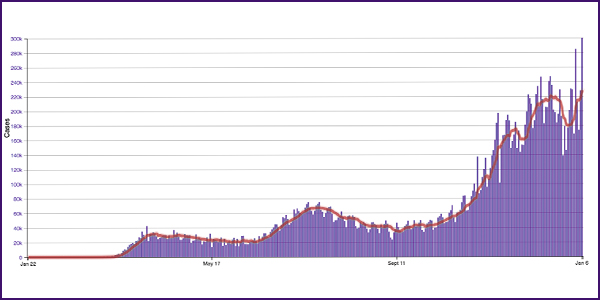Expansions to the ERO Enterprise self-logging program, along with deferments of audits and other on-site activities, will continue through the end of June so that registered entities can focus on their response to the COVID-19 pandemic, NERC said on Wednesday.
The measures were introduced in May 2020, allowing all registered entities — regardless of whether they are already part of the program — to self-log instances of noncompliance that pose either a minimal or moderate risk to the bulk power system, as long as the noncompliance can be attributed to coronavirus mitigation actions. (See ERO COVID-19 Measures to Continue into 2021.)
Wednesday’s announcement indicates that despite NERC CEO Jim Robb’s talk in the Member Representatives Committee’s (MRC) informational session the same day of a “light at the end of the tunnel,” the ERO Enterprise still sees the pandemic as a long-term challenge.
“During this challenging time, the ERO Enterprise recognizes the importance of prioritizing the health and safety of personnel and the continued reliability and security of the bulk power system. We will continue to evaluate the circumstances to determine whether additional guidance and extensions are needed,” the organization said.
Expiration of Pandemic Measures Uncertain
NERC and the regional entities’ decision to push back the expiration of the self-logging expansion and on-site activity deferments again fits with other pandemic-related measures that the organizations have extended.
The most visible of these are the remote work postures adopted by many organizations. A NERC representative confirmed to ERO Insider that the organization’s offices in Atlanta and D.C. are still closed, despite earlier plans to reopen them by the end of 2020. REs that plan to delay reopening their offices until at least the second quarter of 2021 include Midwest Reliability Organization, Texas Reliability Entity and SPP.
SERC Reliability is currently in a “soft opening,” in which employees may return to work voluntarily, and is planning to begin a phased “hard opening” on March 1 aimed at getting all employees back to its Charlotte, N.C., office. ReliabilityFirst is following a similar plan, with employees allowed to work from home through the end of the first quarter, though the office is “open to staff on a voluntary basis.”
WECC announced in November its Salt Lake City and Vancouver offices would remain closed until at least Feb. 1, with no in-person meetings or travel through the end of March.
NERC has canceled in-person gatherings in the spring as well, including the inaugural Electric Power Human Performance Improvement Symposium. The conference, a joint effort between the ERO Enterprise and the North American Transmission Forum, was originally deferred from September 2020 to March before being delayed again in October. The new date has yet to be determined.
Robb told Wednesday’s MRC session that NERC’s 2021 Board of Trustees meetings will likely all be held remotely. A return to in-person gatherings is possible next year; in a sign of the pandemic’s long-term impact, the organization is considering holding two of the four yearly events in a hybrid format, with some participants attending via conference call. (See NERC Considering Long-term Virtual Board Meeting Format.)
Other COVID-19 responses have been allowed to sunset. Seven reliability standards whose implementation dates were delayed last April have taken effect. (See FERC Agrees to Defer Standards Implementation.) CIP-005-6 (Electronic security perimeter(s)), CIP-010-3 (Configuration change management and vulnerability assessments) and CIP-013-1 (Supply chain risk management) became enforceable on Oct. 1, and the remaining provisions of PRC-002-2 (Disturbance monitoring and reporting requirements) and PRC-025-2 (Generator relay loadability) took effect Jan. 1.
PER-006-1 (Specific training for personnel) and PRC-027-1 (Coordination of protection systems for performance during faults) are scheduled to take effect by April 1. Robb said last year that NERC and No Further Deferments for NERC Standards.)





